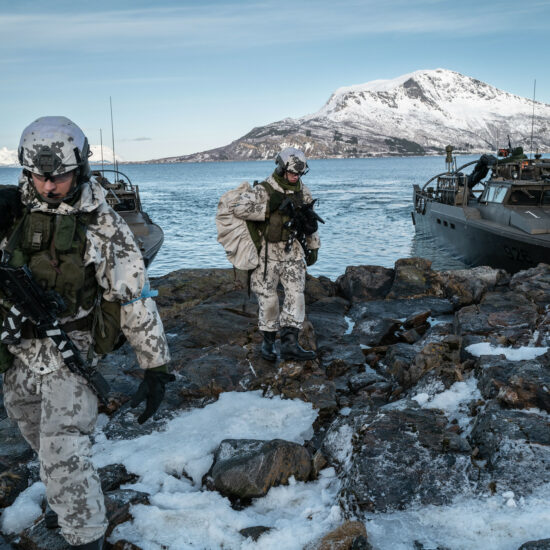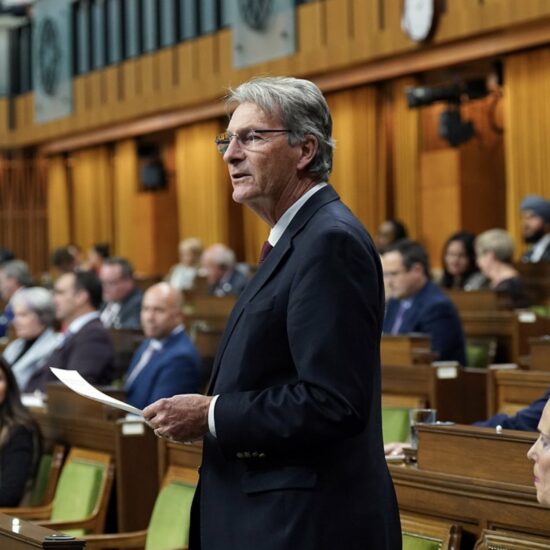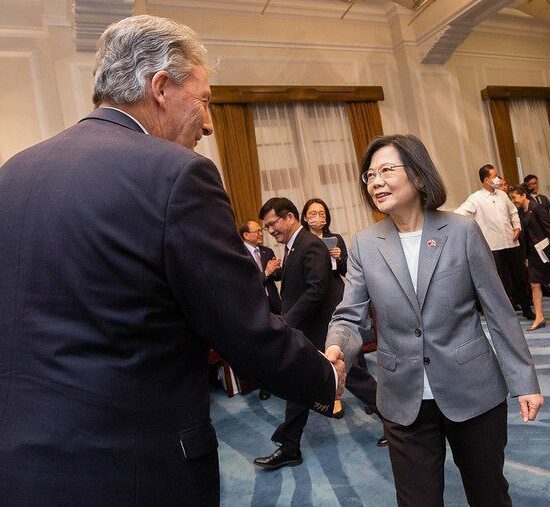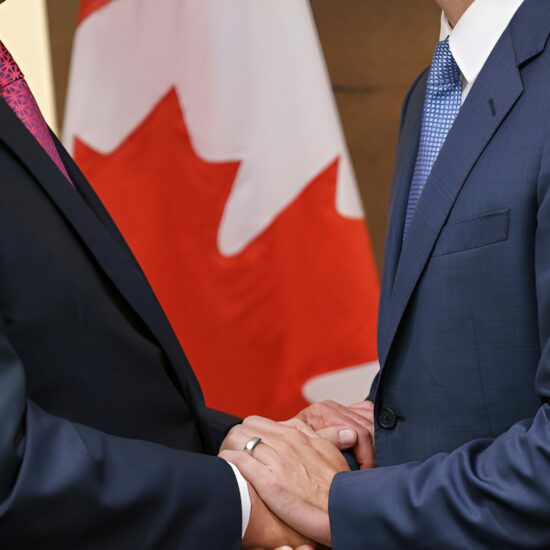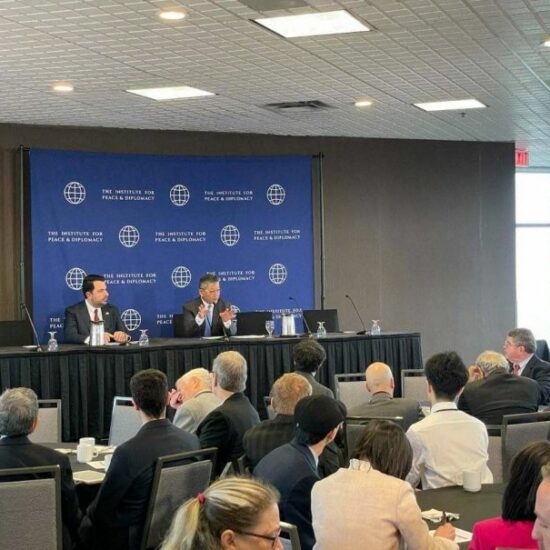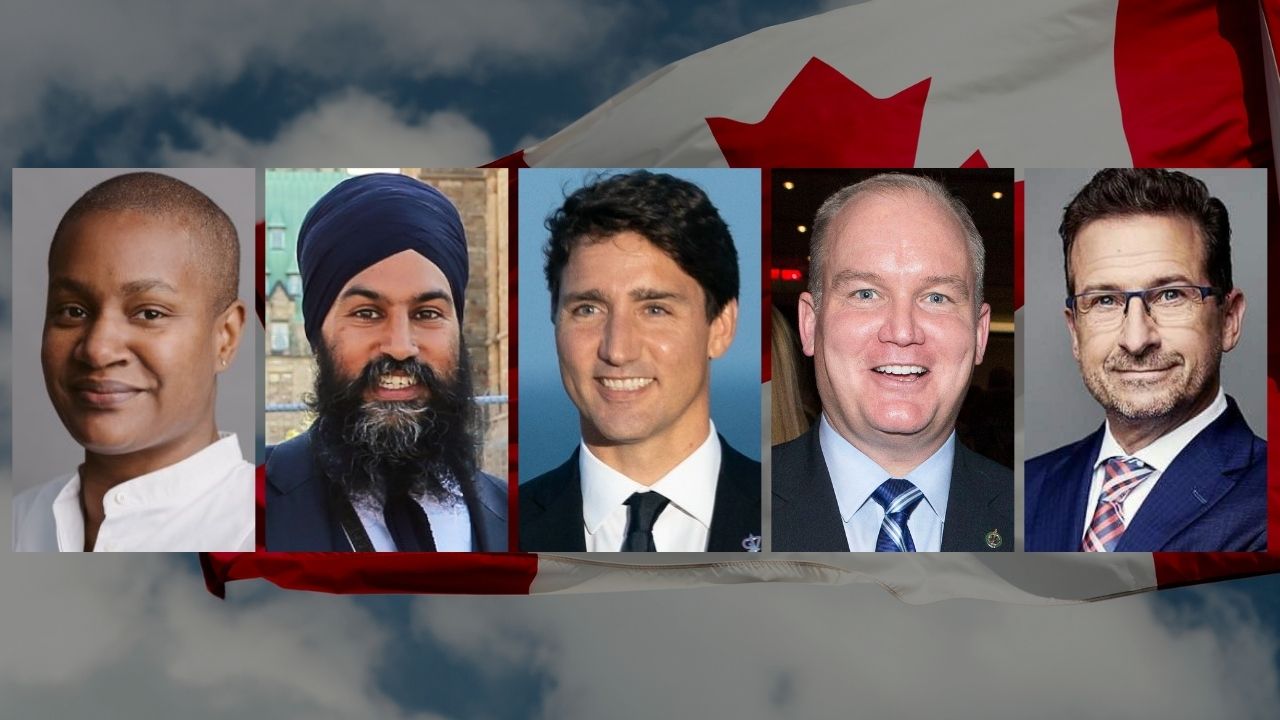
Image credits: Andrea Hanks; Yvonne Bambrick
40 scholars, experts, and former diplomats have signed an open letter initiated by the Institute for Peace and Diplomacy (IPD) urging all federal party leaders to recognize the importance of foreign policy issues and international affairs in the current election campaign.
Here is the full text of the letter (in both English and French) along with the list of distinguished signatories:
Rt. Hon. Justin Trudeau, Leader of the Liberal Party of Canada
Hon. Erin O’Toole, Leader of the Conservative Party of Canada
Jagmeet Singh, Leader of the New Democratic Party
Yves-François Blanchet, Leader of the Bloc Québécois
Annamie Paul, Leader of the Green Party of Canada
Dear party leaders,
We are a group of scholars, researchers and experts on Canadian foreign policy. We are joining forces to urge all federal parties to recognize the importance of foreign policy issues and international affairs in this summer election campaign. Beyond pocketbook issues, a credible conversation on Canada’s interests and role in the world is a necessary part of what will inform voters.
This election coincides with a critical moment for Canada’s role on the global stage. A series of challenges from near and afar have had direct impacts on the jobs, safety, and livelihoods of Canadians. In a rapidly changing global context, Canada’s security and prosperity will be contingent on how its political parties define and enact its foreign policy.
Turbulence in the Canada-US relationship, which began under the Trump administration but has not entirely abated under Joe Biden, signals the dawn of an era of unpredictability which should overturn traditional Canadian assumptions about foreign policy and the international order. Similarly, the rise of China will have implications for Canada’s interests in ways that will be difficult to anticipate. A multipolar world framed by an accelerating contest between great powers will impose constraints on Canada’s ability to define and secure its interests as a sovereign country. With the arrival of the COVID-19 pandemic, it is even more clear that Canadian life is inextricably linked to global affairs.
It is imperative that the next government articulate Canada’s voice on foreign policy issues and how it will navigate its international relationships in the years ahead. Canada’s failed bid for a UN Security Council seat, its second in a decade, indicates that its global presence may already be waning. With the international order in flux, Canada needs a strategy to meet the challenges of the 21st century. If Canada continues to marginalize the vital role of foreign policy discussions at home, it risks diminishing its ability to secure its way of life and prepare for an increasingly uncertain world.
Amid this backdrop, we call on representatives from Canada’s federal parties to participate in foreign policy debates, to recognize the importance of foreign policy in securing Canada’s welfare, to raise the relevance of foreign policy issues where necessary, and to express strategically minded visions for Canada’s role in the world during this election campaign.
Chers chefs de partis,
Nous sommes un groupe de professeurs, chercheurs et experts en matière de politique étrangère du Canada. Nous joignons nos voix pour exhorter tous les partis fédéraux à reconnaître l’importance de la politique étrangère et des affaires internationales lors de cette campagne électorale d’été. Au-delà des questions monétaires, une conversation crédible à propos des intérêts du Canada et de sa place dans le monde est nécessaire pour informer les électeurs sur les enjeux d’aujourd’hui.
Cette élection se tient à un moment clef pour le Canada sur la scène internationale. Notre pays fait face à plusieurs défis qui, de près ou de loin, auront un impact direct sur les emplois, la sécurité et les moyens de subsistance des Canadiens. Dans le contexte d’un monde qui change rapidement, la sécurité et prospérité du Canada dépendent de la façon dont les partis politiques définissent et poursuivent la politique étrangère du pays.
La turbulence dans les relations canado-américaines, particulièrement visible lors de l’administration de Donald Trump mais qui n’a pas complètement diminué sous Joe Biden, marque le début d’une nouvelle ère d’imprévisibilité qui devrait remettre en question les présupposés traditionnels du Canada sur la politique étrangère et l’ordre international. De même, la montée de la Chine aura des implications potentiellement imprévisibles pour les intérêts du Canada. Un monde multipolaire, basé sur une compétition qui s’accélère entre les grandes puissances, impose des contraintes sur la capacité du Canada à définir et poursuivre ses intérêts en tant que pays souverain. La pandémie de COVID-19 démontre encore plus clairement que la vie au Canada dépend fortement des affaires internationales.
Il est impératif que le prochain gouvernement articule une position cohérente sur les enjeux de politique étrangère et sur la manière dont le pays compte gérer ses relations internationales dans les années à venir. L’échec de la candidature canadienne à un siège au Conseil de Sécurité de l’ONU, le deuxième au cours d’une décennie, suggère que la présence internationale de notre pays pourrait déjà être en déclin. Dans un ordre international changeant, le Canada a besoin d’une stratégie pour relever les défis du 21e siècle. S’il continue à marginaliser la place des discussions sur la politique étrangère, le Canada risque de diminuer sa capacité de protéger sa manière de vivre et de se préparer pour un monde de plus en plus incertain.
Dans ce contexte, nous appelons les représentants des partis fédéraux canadiens à participer à des débats à propos de la politique étrangère, à reconnaître l’impact de celle-ci sur le bien-être du Canada, et à exprimer une vision stratégique de la place du Canada dans le monde pendant cette campagne électorale.
List of Signatories:
Jeremy Kinsman: Former Canadian High Commissioner/Ambassador and Distinguished Fellow, Canadian International Council.
Peggy Mason: Former Canadian Ambassador for Disarmament and President, Rideau Institute on International Affairs.
Ben Rowswell: President, Canadian International Council; Former Ambassador to Venezuela.
Guy Saint-Jacques: Former Canadian Ambassador to China and Fellow, Institut d’études internationales de Montréal.
Henri-Paul Normandin: Ex-Ambassadeur du Canada auprès des Nations Unies, Fellow à l’Institut d’études internationales de Montréal.
Paul Meyer: Adjunct Professor, School for International Studies, Simon Fraser University; Former Ambassador to UN.
Ferry de Kerckhove: Former Canadian Ambassador to Indonesia and Egypt and Senior Fellow, University of Ottawa Graduate School of Public and International Affairs.
Haig E. Sarafian: Former Canadian Ambassador to Lebanon and Libya.
Thomas Axworthy: Chair of the Public Policy Program, Massey College.
Jack Cunningham: Program Coordinator, Bill Graham Centre for Contemporary International History, Trinity College, University of Toronto.
Hélène Laverdière: Former Member of Parliament and NDP Critic for Foreign Affairs.
Margaret Cornish: Honorary Research Fellow, Institute of Asian Research, School of Public Policy and Global Affairs, University of British Columbia.
Colin Robertson: Vice President, Canadian Global Affairs Institute.
Stephen Saideman: Paterson Chair in International Affairs, Carleton University.
David Dewitt: Professor Emeritus, Department of Politics, York University.
Kim Richard Nossal: Professor Emeritus, Centre for International and Defence Policy, Queen’s University
Chris Kilford: Director, Canadian International Council.
John Packer: Director, Human Rights Research and Education Centre (HRREC), University of Ottawa.
Michael Byers: Professor, Department of Political Science, University of British Columbia and Canada Research Chair in Global Politics and International Law.
Andrew Cohen: Associate Professor, School of Journalism and Communication, Carleton University
Marie-Joëlle Zahar: Director, Research Network on Peace Operations, Université de Montréal.
David Carment: Professor of International Affairs, The Norman Paterson School of International Affairs, Carleton University.
Jonathan Paquin: Professeur, Département de Science Politique, Université Laval.
Srdjan Vucetic: Professor, Public and International Affairs, University of Ottawa.
Piotr Dutkiewicz: Professor of Political Science and Director of the Center for Governance and Public Policy, Carleton University.
Amal Attar-Guzman: Associate Editor, The Hub Canada Media.
Stephen Smith: Postdoctoral Fellow, Munk School of Global Affairs and Public Policy.
Andrew Thomson: Adjunct assistant professor of political science, University of Waterloo and Senior Fellow, Centre for International Governance Innovation (CIGI).
John Foster: Author, Oil and World Politics.
Stéphanie Martel: Assistant Professor, Department of Political Studies, Queen’s University.
Michael Manulak: Assistant Professor, The Norman Paterson School of International Affairs, Carleton University.
Joseph Debanné: Chair of Advisory Council, Ottawa Forum on Israel Palestine.
Marie Lamensch: Project Coordinator, Montreal Institute for Genocide and Human Rights Studies at Concordia University.
Jacob Fortier: Emerging Scholar, Network for Strategic Analysis (NSA).
Pierre Colautti: Emerging Scholar, Network for Strategic Analysis (NSA).
Jeremy Wildeman: Fellow, Human Rights Research and Education Centre (HRREC), University of Ottawa.
Wenran Jiang: Advisor, Institute for Peace & Diplomacy (IPD), Asia Program; President of Canada-China Energy and Environment Forum.
Younes Zangiabadi: Executive Vice President, Institute for Peace & Diplomacy (IPD).
Zachary Paikin: Research Fellow, Institute for Peace & Diplomacy (IPD).
Bijan Ahmadi: Executive Director, Institute for Peace & Diplomacy (IPD).
All signatories have signed the letter in their individual capacities and their stated affiliations do not constitute institutional endorsement of the letter.





